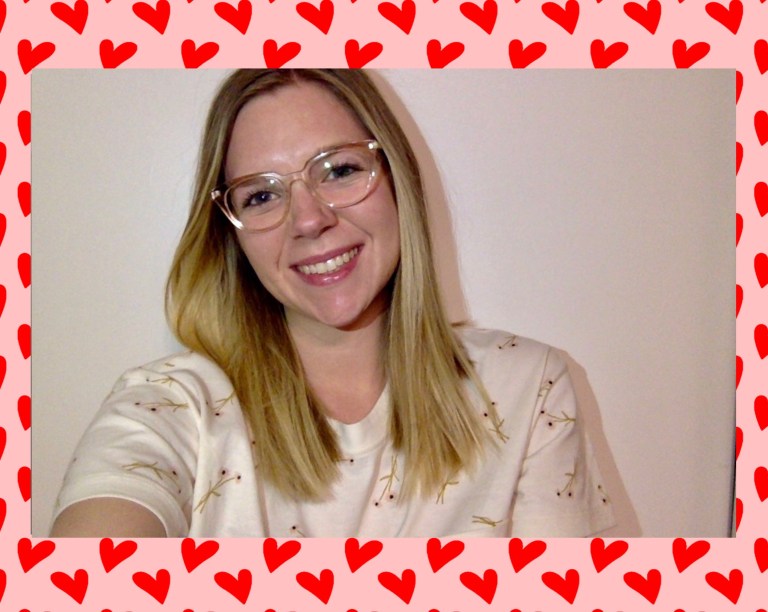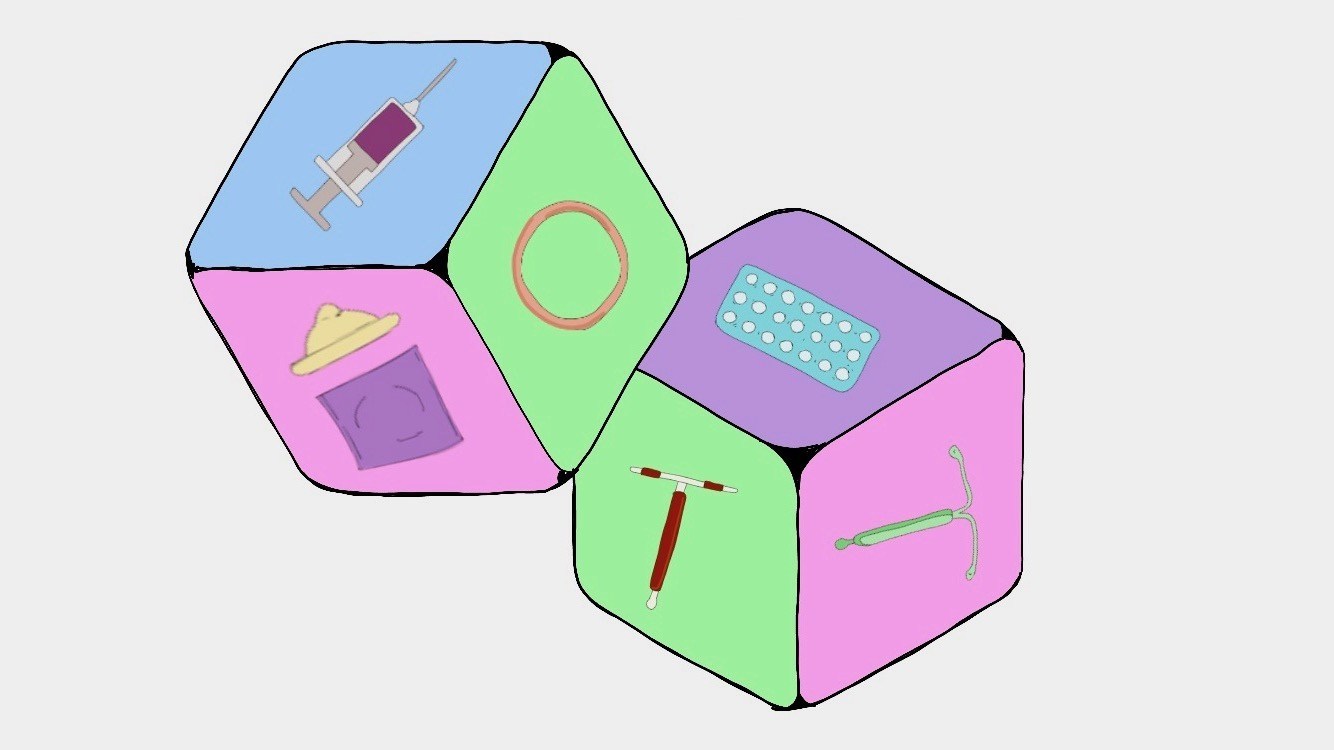This is the second installment of Crybaby’s monthly series, the Birth Control Diaries. The series was created by Story Editor Zoe Allen and Writer Irine Le to evoke conversation about and bring awareness to the trials and tribulations of birth control.
Illustration by Sam Tuvesson
Kelsey Foley, 19, sophomore at Fashion Institute of Technology (New York, NY)
Birth control method: Drospirenone and Ethinyl Estradiol (The Pill)
Oral contraception, oftentimes known as “the pill,” is a hormonal birth control method that is taken daily. The pill comes in two forms: a combination or progestin-only pill. According to Planned Parenthood, “it is safe, affordable, and effective if you always take your pill on time. Besides preventing pregnancy, the pill has lots of other health benefits, too.” For more information on the pill, click here.
Kelsey was diagnosed with Polycystic ovary syndrome (PCOS) in December 2018. PCOS affects one in ten women of childbearing age and is caused by an imbalance of reproductive hormones. Kelsey uses birth control to regulate her symptoms and maintain her reproductive and overall health. A key sign of the syndrome are irregular menstrual periods, which have the potential to lead to infertility.

Tell me about your birth control journey.
When I first got my period, when I was 13, it was super irregular. I talked to my doctor and she said “that’s kind of normal sometimes,” which looking back on, I’m sort of like “that was bad advice.” So, she just put me on the pill (I don’t remember which one it was). I was on that starting at like 14 and it was fine, I mean, it regulated my period. But then I started getting really painful periods and mood swings, so she switched me to a different one and it was okay, but not better. She kept switching me to different ones and by 18 I was sort of sick of it, so I tried to go off, thinking that my periods might be better. But they weren’t. They were super painful–I couldn’t get out of bed. I got bad acne and I’ve tried everything short of Accutane. My doctor decided to test me for Polycystic Ovary Syndrome (PCOS). It’s a hormonal imbalance that can cause cysts in your uterus. Most people don’t even know that they have it, but there’s so many other symptoms that go along with it. It’s about how and if you get diagnosed pretty much. I found out I had it, and all you can do is really just stay healthy. Especially if you want kids eventually, because it can make it really difficult to help kids. Birth control is a really big part of [keeping myself healthy], keeping my symptoms under check and under control.
How does birth control help regulate PCOS?
When I was off the pill, I would pretty much never get my period. I would get it maybe a couple times a year and it would be super painful and unpredictable. I also would just be so hormonal around my period, and the pills helped stabilize my mood around my period. [Birth control] helps regulate my hormones. One of the things with PCOS is it can make you insulin resistant, so you have a higher risk of getting diabetes. There’s so many different symptoms that sort of build onto one another. If you’re insulin resistant, it can make your acne flare ups worse. It’s all rooted back to the hormonal imbalance. The birth control is basically keeping your hormones in check.
Did your experience with birth control prior to your diagnosis impact your view on birth control?
I’ve always been skeptical of putting hormones that are not natural into my body, so that’s kind of why I went off of it. When I was 14, I was just doing what the doctor said and then I decided to go off of it when I was 18. Now I’m just like, [birth control] helps and I can really tell it helps. You have to keep your symptoms in check if you want to stay healthy, but also for your reproductive health, because I want kids. You have to get ultrasounds regularly as well.
Do you recommend people get screened for PCOS? How common is this?
I mean, one of my best friends has it. I feel like it’s pretty common, but it’s not talked about, though. I feel like there’s this conception that if you’re irregular, it’s not normal. If you really are irregular, and you’re not sure if it’s supposed to be that way, definitely talk to your doctor.
Kelly Black, 20, sophomore at Arizona State University (Tempe, AZ)
Birth control method: Mirena (Intrauterine Device)
An Intrauterine Device, more commonly known as an IUD, is a small device that is inserted into your uterus. According to Planned Parenthood, “it’s long-term, reversible, and one of the most effective birth control methods out there.” For more information on IUDs, click here.

When did you start taking birth control?
I started taking birth control pills when I was 16 because I had the kind of period that makes you sick to your stomach and lasts eight days. Of course, another perk was no babies, which I wasn’t planning on for at least another 10-15 years. I got my first set of birth control pills from my primary care physician who asked me a few questions and then prescribed a pack for me to try.
What was that ‘first trial’ of birth control pills like for you?
I started taking my first pack and after a few weeks I started noticing some side effects. They were mild at first, more acne, some weight gain, and occasional headaches. About two months into this pill, I was vomiting every day from the severe nausea.
After talking to my doctor, she thought the hormones in my first pill were too high so she prescribed me a new pill brand with a lower estradiol dose. With these new pills, the symptoms lessened and I felt better overall but I then started getting my period twice a month which was exactly the opposite of what I wanted. The periods weren’t as intense or lengthy but my doctor was concerned I would become anemic. She prescribed me the same brand of pills but with a higher dose of hormones to hopefully balance out my periods without any extreme side effects. These pills didn’t give me any major hormonal imbalances but I was still getting my periods irregularly and multiple times throughout the month.
Did you look into switching your birth control method?
I started looking into other birth control options like the implant and IUD. I did research and called my gynecologist and set up an appointment where we decided the Mirena IUD was my best option. This way I didn’t have to remember to take a pill everyday at the same time, and would hopefully stop my irregular periods and bad cramps. I got the Mirena IUD inserted last November and the actual insertion wasn’t terrible because my doctor used numbing cream to lessen the pain.
What was your experience like post-insertion, in terms of physical or emotional side effects?
As soon as the insertion was over though I immediately had the worst cramps I had ever experienced even having taken 800 mg of Ibuprofen before. I was glad I had brought someone to drive me home because I felt like I wouldn’t be able to drive on my own. Once home I spent the rest of the day in bed with a heating pad and then the worst of the pain was over. I still had cramps for about two weeks after and spotting occasionally for the first couple of months.
How has your experience with your IUD been, now that you’re out of the woods in terms of the ‘trial months’ of the IUD?
[Mirena U.S. reports that women will experience more side effects within the first 3-6 months after placement]
Now, about four months later, I have almost zero spotting or cramps and only acne and some mood swings once a month. Because the Mirena IUD has localized hormones, I am not affected as heavily as I was with the pills. My gynecologist even set up a two month follow up ultrasound to make sure my IUD hadn’t shifted and was super kind and made me feel comfortable the entire time.
If you have a story about birth control that you would like to be shared, email [email protected].

